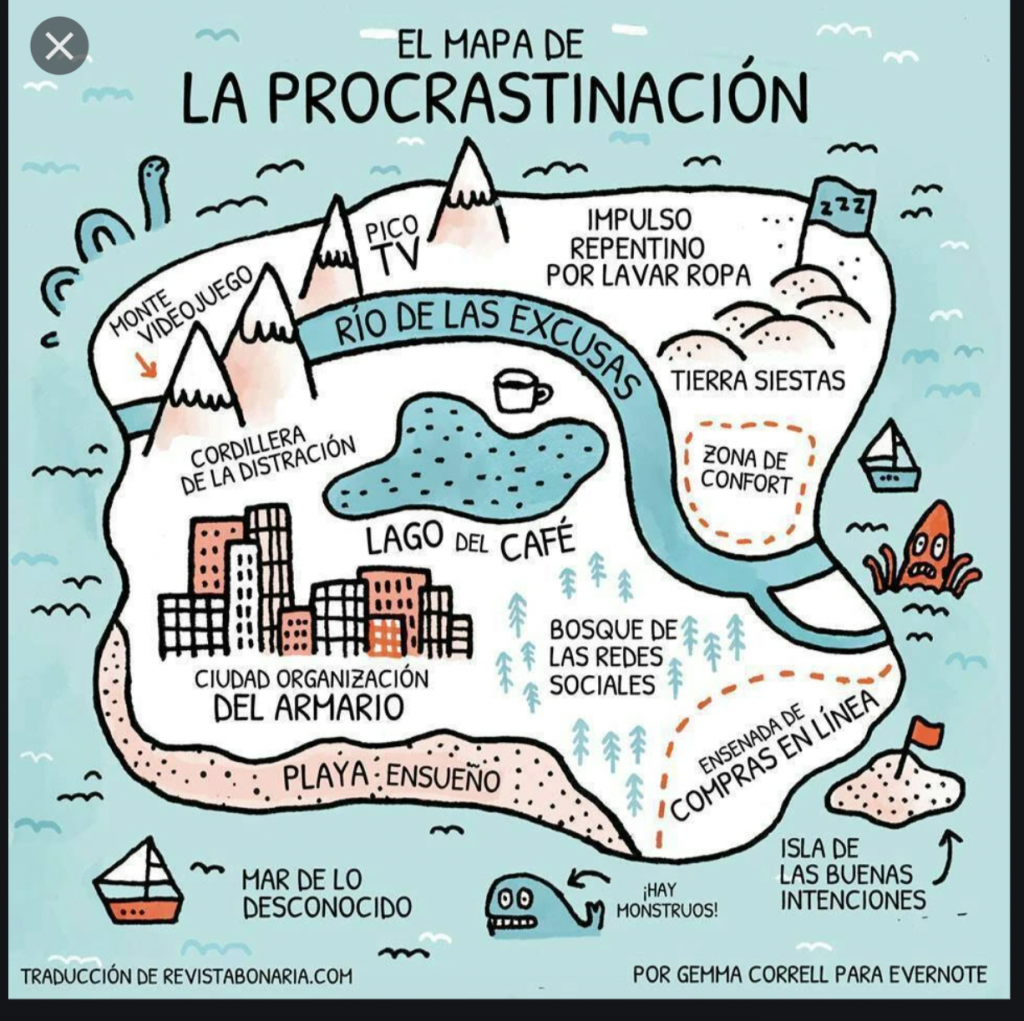
Here are 5 strategies to stop procrastinating
Chances are, you're putting something off right now. Maybe you're even reading this article to do it.
This got me thinking: why do we procrastinate, even though we know it goes against our best interests? How can we overcome this or what techniques can we use to avoid it?
To answer these questions, many researchers have undertaken the task of writing various academic articles. Based on these, we provide you with some answers and techniques that we hope will be useful to you.

Why do we procrastinate?
One of the first things to learn is that procrastination is a human condition. About 95% of people admit to putting something off at work, according to Piers Steel, author of The Procrastination Equation.
As for the phenomenon of procrastination, it's "a purely visceral emotional reaction to something we don't want to do," says Tim Pychyl, author of Solving the Procrastination Puzzle. The more aversion you find in a task, the more likely you are to procrastinate.
In his research, Pychyl identifies a set of seven factors that make a task seem more averse. Bring to mind something you're putting off right now: you'll likely find that task has many, if not all, of the characteristics Pychyl found make a task procrastination-worthy:
• Bored
• Frustrating
• Difficult
• Ambiguous
• Unstructured
• It is not intrinsically rewarding (i.e. you don't find the process fun)
• Lack of personal meaning

On a neurological level, procrastination is nothing more than the failure to use logic: it is the result of the emotional part of your brain, your limbic system, the strong arming of the reasonable and rational part of your brain, your prefrontal cortex. The logical part of your brain gives up the moment you choose Facebook or watching an episode of your favorite series over work or some other responsibility you have at that moment.
But there is a way you can give the logical side of your brain the upper hand. When you notice a clash between logic and emotion, resist the urge to procrastinate. Here are some strategies to help you do just that:
1.- Reverse the triggers of procrastination: Consider which of Pychyl's seven procrastination factors are triggered by an activity you don't want to do. Then try to think differently about that task, making the idea of completing it more appealing.
For example, you have to write a monthly report at the office. If you find that boring, you can turn it into a game: see how many paragraphs you can write in a 20-minute period. Or if you find a work task ambiguous and unstructured, create a workflow that lays out the exact steps you and your team need to follow each month to complete it.
2.- Work with your resistance levels:When a task triggers procrastination, we resist doing it. But how resilient are we?
Let's say you have to do a lot of research for an upcoming project. To find your stamina level, consider the effort you put into that task. For example, the research you're doing involves long periods of reading but you resist long periods, so you want to shorten the amount of time until you find a period where you no longer resist the task and gradually increase those periods.
3.- Continue any task that you had postponed: It's easier to continue with a task you've already started but put off than to tackle a new task. That's because tasks that induce procrastination are rarely as bad as we think. Continuing with something forces a subconscious re-evaluation of that work, where we might find that the actual task triggers fewer procrastination factors than we originally thought.
4.- Make a list of the costs of procrastination: This tactic works best when you realize how much it costs you to stop doing very large tasks. Making a list of costs allows you to realize that procrastination is not only affecting your economy, it also affects your social life, causes stress, affects your happiness, and even your health, etc.
5.- Disconnect: Our devices are a sea of distractions, whether it's email, social media, or texting with friends and family. It may be difficult to avoid these distractions, but if we don't avoid them, we make our work more ambiguous and unstructured.
The next time you think about putting something off, consider what factor is causing you to want to put things off and take into account the strategies mentioned above to overcome procrastination.



